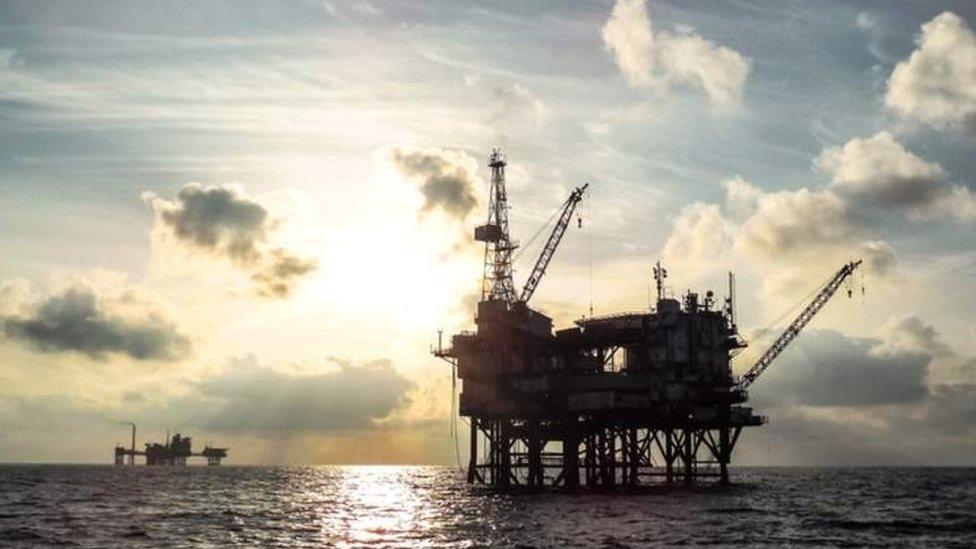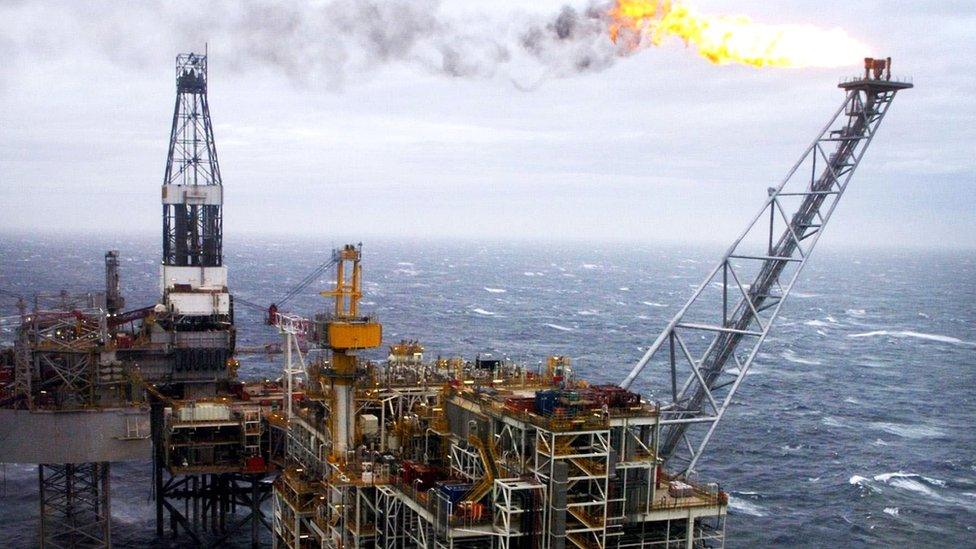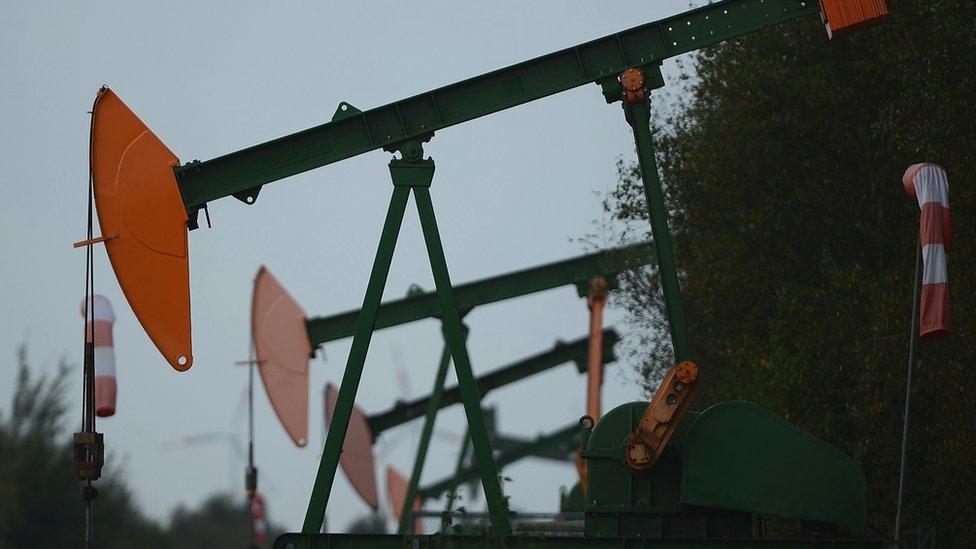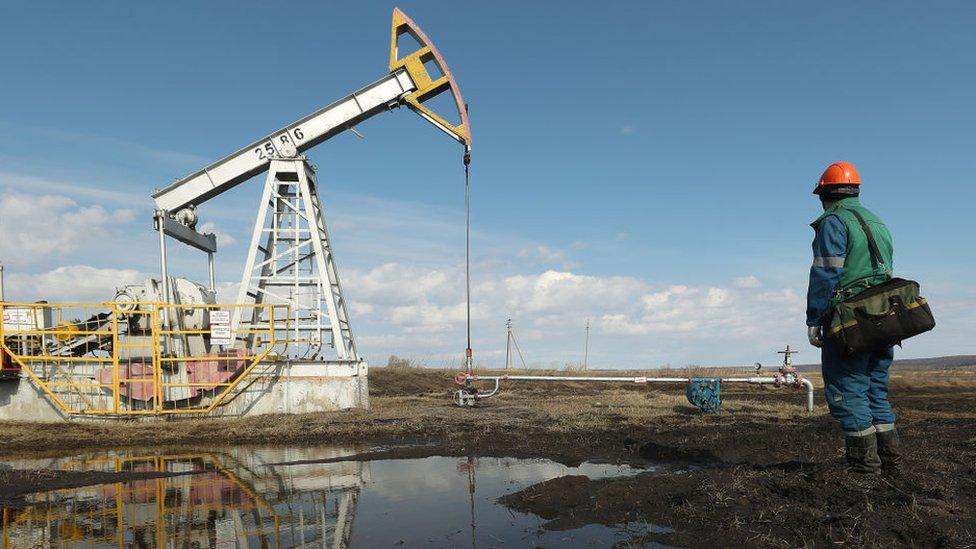What next for the oil industry as prices fall to 18-year-low?
- Published

The global oil market has been spooked by America's tumble into negative prices, and the Brent crude benchmark continues to slide
Cuts in production have not gone far enough, to match the sharp declines in demand
North Sea producers are better prepared for low prices than they were with the last downturn, but cannot sustain activities at current prices
The price of a barrel of Brent crude oil has dipped as low as $18 today - down from $26 in one day, and the lowest price in 18 years.
It's now far below the prices that caused a very painful shakeout in the Scottish oil and gas sector from 2014 to 2016.
One effect of that downturn was that the industry cut its costs and was better able to handle another downturn.
But it cannot sustain the current problems without major job losses, through cuts to capital spending which are already well under way.
Prices are well beyond the control of the Scottish industry.
It was in Saudi Arabia that the price has been controlled for nearly 50 years, with its leading role in Opec, the petroleum exporter cartel.
But that power has waned, as Russia - not a member of Opec - undermined the Arabs' control.
They failed to agree on production cuts in early March, which sent the price tumbling from the mid-$50 range to below $30. They then agreed 10 days ago on a 10% cut in production. The price of Brent crude, the global benchmark, rose to the mid-$30s.
That cut wasn't even close to the projected drop in demand, due to lockdown, industries shuttered and far less oil-burning transport on the move.
'Squeeze on production expenditure'
On Monday, the International Energy Agency estimated that global oil demand in April was down by around a third. For April to June, it is down around a quarter.
So while demand keeps dropping, unmatched by the decline in supply, so does the price - not as far as the American experience, perhaps, where there's a distinct oil market and a different benchmark price. A lack of storage for near-term delivery of oil meant traders on Monday had to pay to get the black stuff off their hands.
What could rebalance the market and stabilise the price? A return of demand through the lockdown being relaxed. A further cut in supply by exporters. Or a further cut in supply by those who cannot afford to keep producing.
That includes US shale drillers, who made America into the world's biggest oil producer, but entered this downturn deep in debt.
It could also come to hit offshore producers, particularly in mature oil "basins" such as the North Sea.
If this continues, with big cuts in capital spend and a squeeze on production expenditure, then older, more expensive fields will have to be retired early.
- Published22 April 2020

- Published21 April 2020

- Published12 April 2020

- Published21 April 2020

